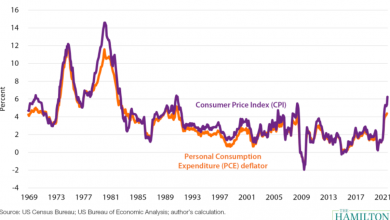The Rise of Brand Advocacy in the Digital Age: Why Word-of-Mouth Marketing Is More Important Than Ever
In today’s digital age, word-of-mouth marketing has taken on a new level of importance. Consumers are bombarded with advertisements on social media, search engines, and other digital platforms. As a result, they’re increasingly turning to their peers for recommendations and advice. In this article, we’ll explore the rise of brand advocacy in the digital age and why word-of-mouth marketing is more important than ever.
Table of Contents
The Power of Social Media
Social media has transformed the way consumers interact with brands. Platforms like Facebook, Twitter, and Instagram provide consumers with a direct line of communication to brands, making it easier than ever to share their experiences and recommendations with others. According to a study by Nielsen, 92% of consumers trust recommendations from friends and family more than any other form of advertising.
The Impact of Reviews
Online reviews have become a critical component of word-of-mouth marketing in the digital age. Consumers rely on reviews to make purchasing decisions, with 87% of consumers saying that they won’t consider a business with a low rating. Brands that prioritize customer service and satisfaction can leverage positive reviews to attract new customers and build a loyal following.
The Role of Influencers
Influencers are another important element of word-of-mouth marketing in the digital age. These individuals have built large followings on social media and other platforms, and they can be powerful advocates for brands that align with their values and interests. Brands can work with influencers to promote their products and services to their followers, generating buzz and increasing brand awareness.
The Importance of Authenticity
Authenticity is key to successful brand advocacy in the digital age. Consumers can spot insincere endorsements from a mile away, and they’re more likely to trust recommendations from people who genuinely believe in the brand. Brands that prioritize transparency, honesty, and authenticity can build trust with their customers and turn them into passionate advocates.
Examples of Brand Advocacy
- Glossier – Glossier has built a loyal following through its emphasis on user-generated content and social media engagement. The brand encourages customers to share their experiences on social media and features user-generated content on its website and other marketing materials.
- Airbnb – Airbnb has leveraged the power of reviews to build trust with potential customers. The platform allows guests to leave reviews of their stays, providing valuable feedback for hosts and helping other users make informed booking decisions.
- Fabletics – Fabletics has worked with influencers to promote its activewear to a wide audience. The brand has collaborated with celebrities like Kate Hudson and fitness influencers to create buzz and generate interest in its products.
In the digital age, word-of-mouth marketing has taken on a new level of importance. Social media, online reviews, influencers, and authenticity are all critical components of successful brand advocacy. Brands that prioritize customer satisfaction, transparency, and authenticity can build a loyal following of advocates who will help spread the word about their products and services. With the right strategy and approach, brand advocacy can be a powerful tool for growing your business in the digital age.




